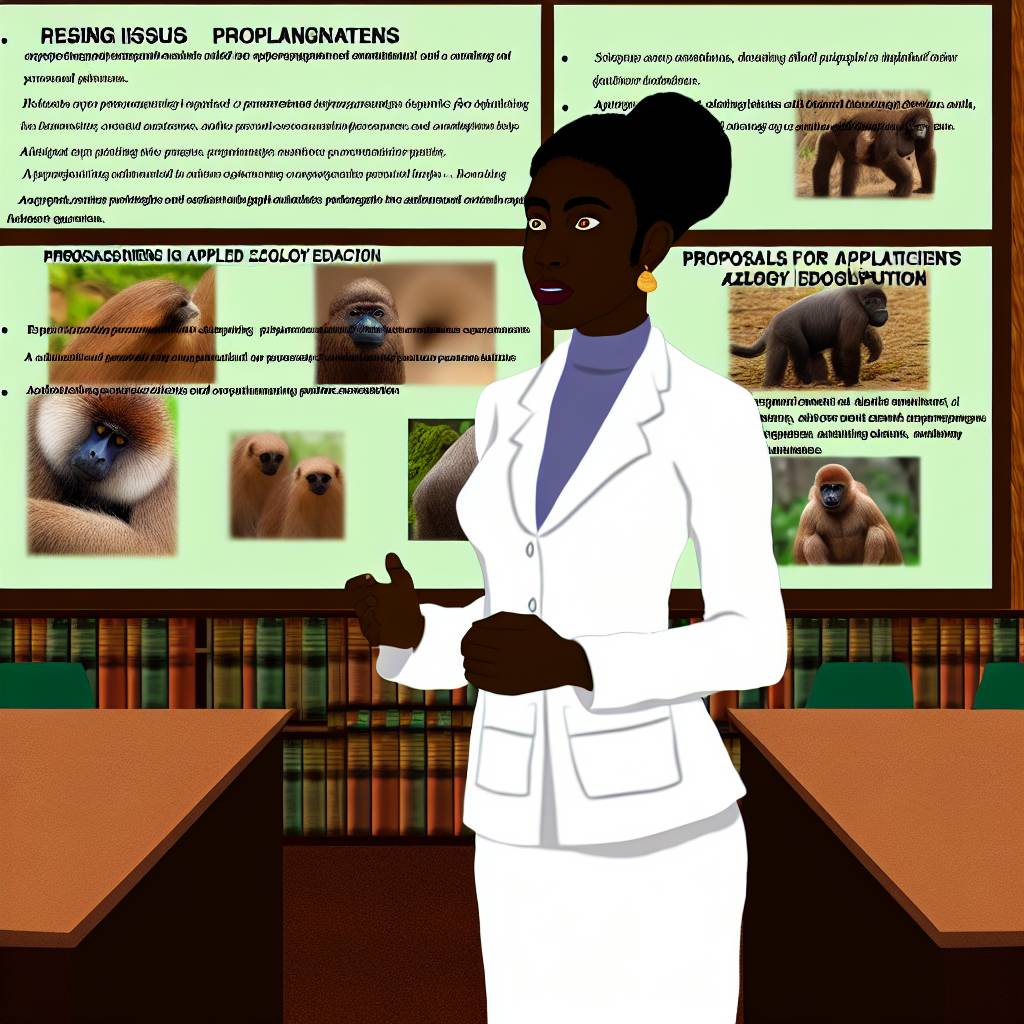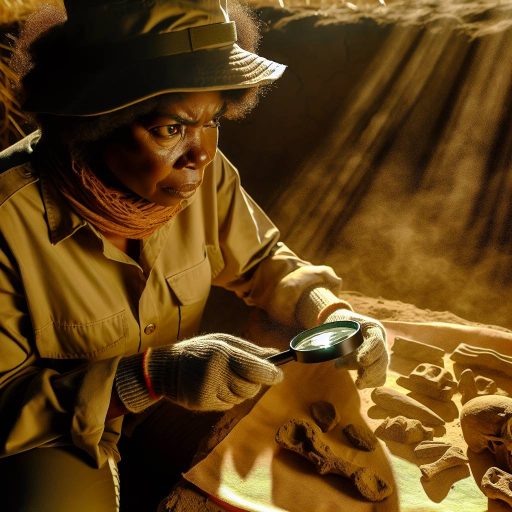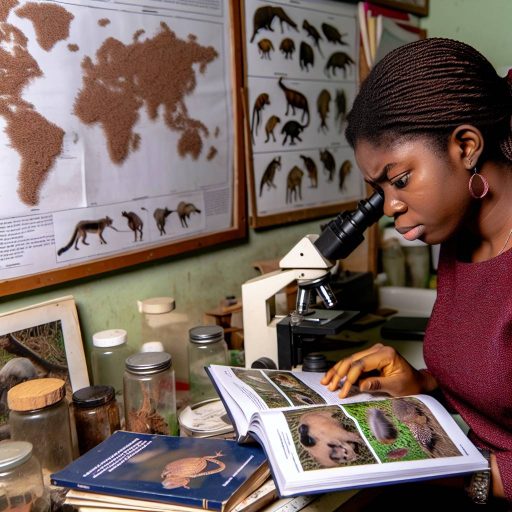Importance of Applied Zoology Education
Applied zoology education is vital in Nigeria for conservation efforts, agricultural productivity, and human health.
Main Challenges
One challenge is inadequate funding for infrastructure and research facilities.
Additionally, there is a lack of qualified teachers and experts in specialized fields.
Moreover, limited practical experience exists due to insufficient resources.
Another issue is the outdated curriculum that does not align with industry demands.
Furthermore, insufficient government support and policies affect the sector.
- Inadequate funding
- Lack of qualified teachers
- Limited practical experience
- Outdated curriculum
- Insufficient government support
Inadequate Funding
Lack of sufficient funding for zoology departments in universities and research institutions.
This impacts resources, equipment, and research opportunities for students.
Consequences for the quality of education and research output in the field.
Insufficient funding is a primary challenge facing applied zoology education in Nigeria.
The lack of adequate financial resources for zoology departments in universities and research institutions hinders the growth and development of the field.
One of the key areas affected by limited funding is the availability of resources such as books, laboratory equipment, and research materials.
Without proper resources, students may not have access to essential tools needed for hands-on learning and research.
Furthermore, inadequate funding restricts the ability of institutions to invest in updated equipment and technology.
This limitation prevents students from gaining practical experience with the latest advancements in the field of zoology, potentially hindering their preparation for future careers.
Research opportunities for students are also greatly impacted by the lack of financial support.
Without funding, institutions may not be able to provide students with opportunities to engage in meaningful research projects, limiting their ability to contribute new knowledge to the field.
The consequences of inadequate funding are reflected in the quality of education and research output in applied zoology.
Students may receive a subpar education due to limited resources, hindering their ability to develop critical thinking skills and hands-on experience.
Research output in the field may also suffer as a result of insufficient funding.
Without adequate support, researchers may face challenges in conducting high-quality studies, potentially limiting the advancement of knowledge in applied zoology.
Addressing the issue of inadequate funding is crucial for overcoming the challenges facing applied zoology education in Nigeria.
By providing sufficient financial resources, institutions can enhance the quality of education, research opportunities, and overall progress in the field of zoology.
One of the major challenges facing applied zoology education in Nigeria is the issue of outdated curriculum.
Failure to Update Curriculum
- Failure to update curriculum to align with current trends and technological advancements.
- Technological advancements are rapidly changing the field of zoology.
- The curriculum must reflect these changes to adequately prepare students.
Irrelevance of Some Course Materials
- Some course materials may not be aligned with industry needs.
- Students may be learning outdated or unnecessary information.
- Relevance to the needs of the industry and society is crucial.
Need for a Review and Restructuring of the Curriculum
- There is an urgent need for a comprehensive review of the existing curriculum.
- The curriculum should be restructured to meet the demands of the field.
- Industry stakeholders should be involved in the process of curriculum development.
Addressing the challenge of an outdated curriculum in applied zoology education in Nigeria is essential for the growth and relevance of the field.
By updating course materials, aligning with current trends, and involving industry stakeholders, the curriculum can better prepare students for the demands of the industry and society.
Uncover the Details: Ethnographic Studies: Key Nigerian Communities Explored
Shortage of Qualified Instructors
One of the major challenges facing applied zoology education in Nigeria is the shortage of qualified instructors.
This shortage results from a limited number of experienced and qualified individuals in the field of zoology who are available to teach at higher education institutions.
As a result, students may not have access to the breadth and depth of knowledge that is necessary for a comprehensive education in applied zoology.
Furthermore, the difficulty in finding professionals to teach specialized courses and supervise research projects can hinder the overall quality of education.
Without experts in the field guiding students through their coursework and research, students may not receive the mentorship needed to excel in their studies.
This lack of mentorship can affect the quality of research projects and the overall educational experience for students.
The shortage of qualified instructors has a significant impact on the quality of education in applied zoology in Nigeria.
It is essential for higher education institutions to address this challenge by recruiting and retaining qualified instructors who can provide students with the education and mentorship they need to succeed in the field of applied zoology.
- Limited number of experienced and qualified instructors in the field of applied zoology
- Difficulty in finding professionals to teach specialized courses and supervise research projects
- Impacts on the quality of education and mentorship opportunities for students
Learn More: Marine Biology: Nigerian Coastal Pollution Issues
Lack of practical training opportunities:
Inadequate laboratories, field stations, and facilities for hands-on training in zoology.
Limited opportunities for students to gain practical skills and experience in the field.
Practical training is essential in preparing students for careers in zoology.
One of the major challenges facing applied zoology education in Nigeria is the lack of practical training opportunities for students.
Transform Your Career with Expert Guidance
Get personalized mentorship consulting that’s tailored to your unique path. Our expert advice is actionable and exclusive.
Get StartedWithout access to well-equipped laboratories, field stations, and facilities, students are unable to gain hands-on experience in the field of zoology.
This lack of practical training hinders their ability to develop essential skills and knowledge needed for successful careers in the field.
Inadequate laboratories, field stations, and facilities:
One of the main reasons for the lack of practical training opportunities in zoology education is the insufficient number of laboratories, field stations, and facilities available to students.
These resources are essential for conducting experiments, observing wildlife, and collecting data in the field.
Without access to these facilities, students are unable to gain practical experience and apply their theoretical knowledge to real-world situations.
Limited opportunities for students to gain practical skills:
Another challenge is the limited opportunities for students to gain practical skills and experience in the field of zoology.
Due to the lack of hands-on training opportunities, many students graduate without the necessary practical skills needed for successful careers in zoology.
This puts them at a disadvantage when applying for jobs or further studies in the field.
Importance of practical training in preparing students for careers:
Practical training is crucial in preparing students for careers in zoology.
It allows them to apply theoretical knowledge to real-world situations, develop problem-solving skills, and gain valuable experience working with wildlife.
Without practical training opportunities, students may lack the skills and experience needed to succeed in the field of zoology and may struggle to find employment after graduation.
The lack of practical training opportunities in applied zoology education in Nigeria is a significant challenge that needs to be addressed.
By investing in more laboratories, field stations, and facilities, and providing students with more opportunities for hands-on training, educational institutions can better prepare students for successful careers in the field of zoology.
Practical training is essential for developing the skills, knowledge, and experience needed to succeed in this field.
It is crucial that efforts are made to overcome this challenge and provide students with the practical training they need to thrive in the field of zoology.
Learn More: Microbiology Lab Safety Protocols in Nigeria

Challenges in accessing funding for research projects in applied zoology
Securing funding for research projects is a significant hurdle for researchers in Nigeria.
Government support for scientific research is often inadequate.
Competition for limited resources is fierce.
As a result, many researchers struggle to fund their projects.
This leads to a stagnation of knowledge and innovation in the field.
Lack of collaboration between academia and industry for research initiatives
In Nigeria, there is a disconnect between academia and industry regarding research collaborations.
Industry partners are often hesitant to invest in research projects initiated by academia.
Conversely, academia may not fully understand industry needs.
This lack of collaboration limits the scope and impact of research initiatives in applied zoology.
Importance of research in advancing knowledge and innovations in the field
Research is crucial for advancing knowledge and driving innovations in applied zoology.
It helps researchers understand the complex interactions within ecosystems.
Moreover, it aids in developing conservation strategies for endangered species.
Research also facilitates the discovery of new technologies for sustainable resource management.
Without robust research initiatives, the field risks stagnation.
It may fall behind global standards.
Addressing the challenges of limited research opportunities in applied zoology education in Nigeria requires a multi-faceted approach.
Increased government funding is essential.
Stronger collaboration between academia and industry is also vital.
A renewed focus on the importance of research is necessary.
These steps are critical to overcoming obstacles.
Such efforts will ensure the continued growth and development of the field.
Discover More: Impact of Animal Biology on Nigerian Ecosystems
Challenges in Applied Zoology Education in Nigeria
One of the key challenges facing applied zoology education in Nigeria is the inadequate infrastructure within zoology departments.
Poor Infrastructure in Zoology Departments
- Lack of well-equipped lecture halls for students
- Inadequate laboratories for practical experiments and research
- Limited access to updated books and resources in the library
Impact on Teaching, Studying, and Research Activities
The lack of proper infrastructure negatively affects the quality of education and research in applied zoology.
- Students struggle to grasp concepts without adequate facilities
- Difficulty in conducting practical experiments leads to limited understanding
- Research outcomes may be compromised due to lack of necessary tools
Need for Investment in Infrastructure
It is crucial for authorities to invest in infrastructure to enhance the learning environment for students in applied zoology departments.
- New, well-equipped lecture halls can improve classroom experiences
- Upgraded laboratories will facilitate better practical learning opportunities
- Access to a wider range of resources in the library can support research efforts
Main Challenges in Zoology Education
The main challenges facing applied zoology education in Nigeria include inadequate funding.
Additionally, there is an outdated curriculum that needs revision.
There is also a lack of modern research facilities available for students.
Furthermore, students have limited practical exposure in their studies.
It is crucial to address these challenges to enhance the quality of education and research.
Investing in up-to-date resources is vital for improvement.
Revamping the curriculum would make the education system more relevant.
Additionally, providing hands-on training can significantly enhance learning outcomes.
Stakeholders must collaborate to support applied zoology education in Nigeria.
Such stakeholders include government bodies and educational institutions.
Industry partners also play a crucial role in this collaborative effort.
Through collective efforts, sustainable changes can be implemented.
These changes will nurture a new generation of skilled professionals in applied zoology.




